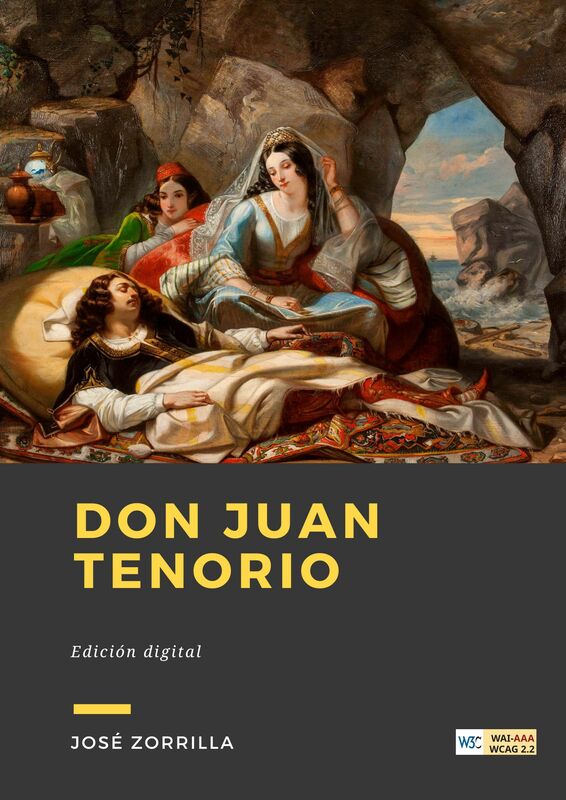
Don Juan Tenorio
José Zorrilla
Don Juan Tenorio
José Zorrilla
José Zorrilla's Don Juan Tenorio stands as the definitive Spanish treatment of the legendary libertine, transforming the traditional Don Juan story into a romantic drama that celebrates the redemptive power of love. Unlike earlier versions that condemned the protagonist, Zorrilla's play offers Don Juan the possibility of salvation through the pure love of Doña Inés. Set in 16th-century Seville, the drama combines elements of romance, adventure, supernatural intervention, and religious redemption to create a work that embodies the spirit of Spanish Romanticism. The play's memorable characters, stirring verse, and dramatic confrontations between good and evil have made it a cornerstone of Spanish theater, traditionally performed during All Saints' Day. Zorrilla's masterful use of language, his creation of iconic scenes like the cemetery encounter and the supernatural finale, and his transformation of a morality tale into a celebration of romantic love have ensured the work's enduring popularity. Don Juan Tenorio remains not just a theatrical masterpiece but a cultural phenomenon that reflects Spanish values, beliefs, and artistic sensibilities.
A propos de l'auteur
José Zorrilla (1817-1893), poeta y dramaturgo español del Romanticismo, es conocido principalmente por su obra teatral 'Don Juan Tenorio', que se representa tradicionalmente en España durante el Día de Todos los Santos.